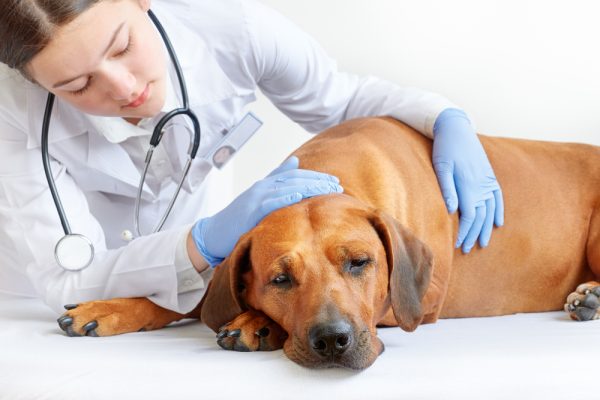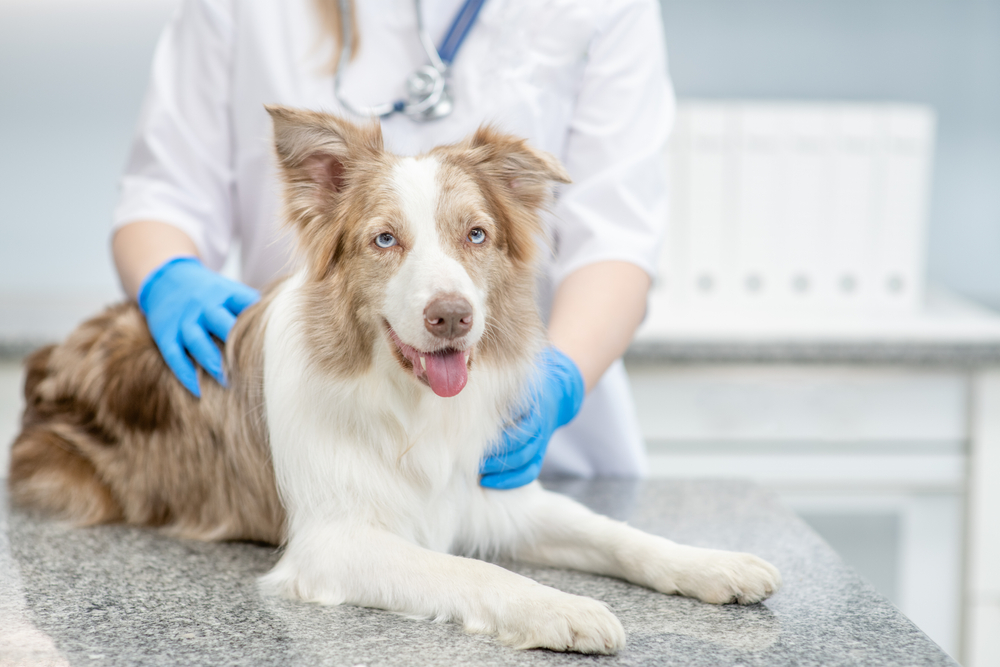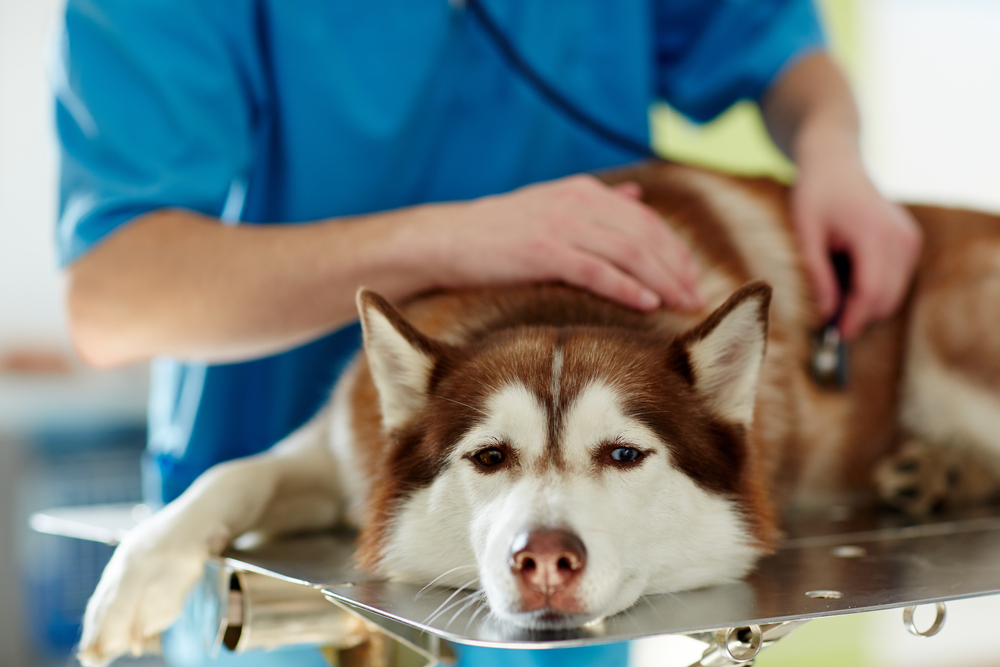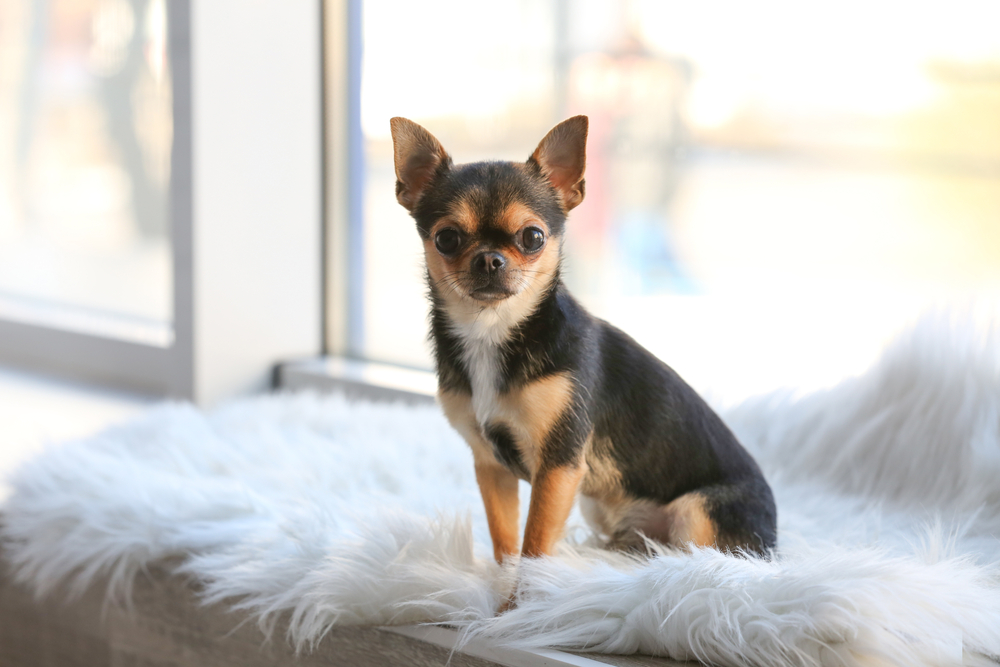Oh no! Your poor pup has been coughing non-stop all weekend. You are suspicious that they have kennel cough. Can you do anything at home to help your loveable canine, or do you have to wait until the vet opens on Monday? Let’s explore what kennel cough is and what you can do at home.
What Exactly Is Kennel Cough?
Kennel cough is a prevalent infectious disease in dogs. No single agent causes this condition, also known as canine infectious tracheobronchitis. Some of the microbes that can cause kennel cough include:
- Bordetella bronchiseptica
- Parainfluenza
- Mycoplasma
It’s common for a mixture of these infectious agents to cause disease. The good news is that most infections resolve with time, around 1 to 2 weeks. Because bacteria aren’t the only thing that can cause kennel cough, your vet will need to examine your pup and run tests before prescribing antibiotics.
This condition more commonly occurs in dogs that visit high-population areas, such as kennels and dog parks. Vaccines, such as the Bordetella vaccine, provide some protection.

Signs of Kennel Cough in Dogs
The most apparent sign of kennel cough is a persistent honking cough. During your pet’s veterinary exam, the vet will likely palpate the throat to see if they can elicit a cough from your furry family member. The cough is usually dry, but some dogs might cough up a foamy material.
Do you see eye or nasal discharge? These signs are commonly present with upper respiratory infections. Some dogs develop conjunctivitis or inflammation of the conjunctiva. Other signs of kennel cough include:
- Sneezing
- Lethargy
- Fever
- Decreased appetite
- Wheezing
Your veterinarian might detect increased lung sounds or evidence of pneumonia on your dog’s physical exam.
The 8 Home Remedies for Kennel Cough
1. Using a Humidifier or Steam
If your dog has kennel cough, consider using a humidifier in the room they rest in. Don’t have one? That’s not a problem. Run a hot shower and have your pup sit in the bathroom, breathing in that warm, moist air.
Steam inhalation won’t treat the underlying cause of the cough, but it can help alleviate symptoms. Anecdotal evidence suggests it moistens the airways and may even thin the mucus. It may also relax the muscles in the throat to reduce the coughing reflex.

2. Try a Spoonful of Honey
If your dog has no health issue that could make giving honey risky, such as diabetes, consider trying it for a cough. In human medicine, giving a small amount of honey reduces coughing in children. As the report notes, honey:
- Has antioxidant properties
- Reduces inflammation of the mucosa
- May have antimicrobial effects
Using fresh, local honey may help alleviate allergy signs, as well.
3. Rest Your Dog
Many cases of kennel cough are self-limiting, but you’ll need to ensure your dog stays calm and relaxed. Increased activity or stress could induce more cortisol as a stress response, decreasing your dog’s immune system function.
Your dog should also be kept away from other dogs while they are sick. They could pass their infection on to another dog and pick up new infections, which could worsen their kennel cough.
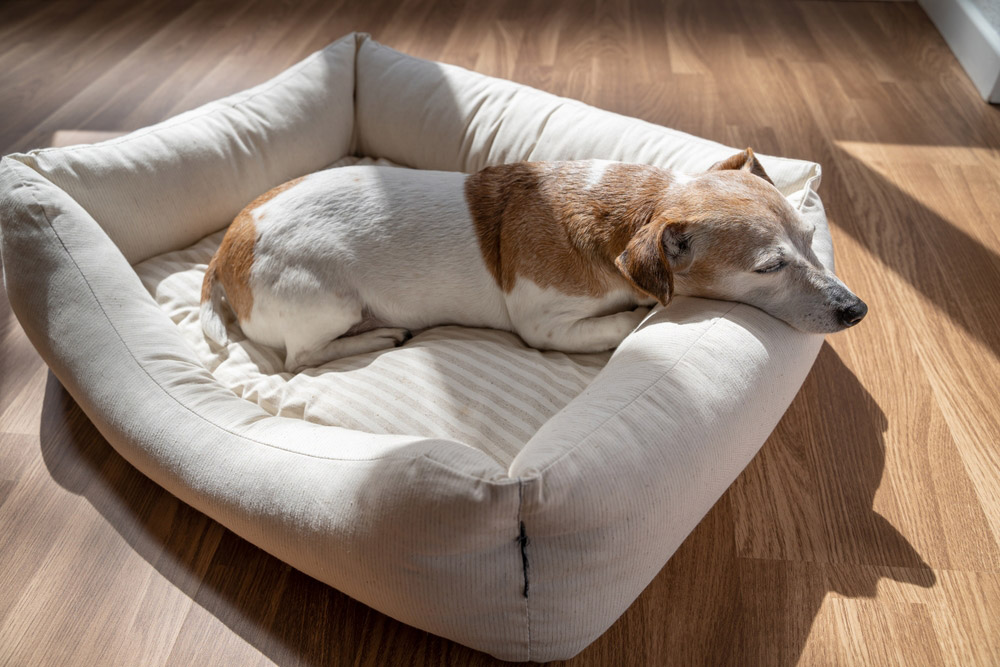
4. Offer Fluids and Liquid Foods
Dogs often decrease their eating and drinking when they don’t feel well. They need to stay hydrated and intake food to provide calories to help their body fight off infection. Make sure your dog has ready access to clean, fresh water. They might drink more with ice cubes in their bowl or offered to them by hand. However, remember that chewing on ice can sometimes damage dogs’ teeth.
Talk to your vet about adding low-sodium chicken broth to your dog’s food to increase their fluid intake and encourage them to eat.
- Reduce Airway Irritants
You’ll want to avoid exposing your dog to airway irritants, such as spraying perfumes or smoking cigarettes. If your dog breathes these types of material in, they can inflame your dog’s airway and increase the likelihood of them coughing.
6. Use a Harness
A harness helps take stress off your dog’s throat. When going for a walk or to the vet’s office, a harness will help reduce pressure applied to the throat.

7. Try a Cough Suppressant
Guaifenesin is a readily available cough suppressant you can get over the counter. It can help some dogs with a cough. You should speak to your veterinarian about dosing instructions and ensure your product is safe for your dog (with no harmful ingredients).
8. Immune Support
While they likely won’t make a great deal of difference in the short term, giving your dog probiotics can do more than just promote gut health. Probiotics, such as Purina’s Forti-flora, can help bolster your dog’s immune system. Roughly 70% of your dog’s immune system is in their gut, so a healthy gut supports a more robust immune system.
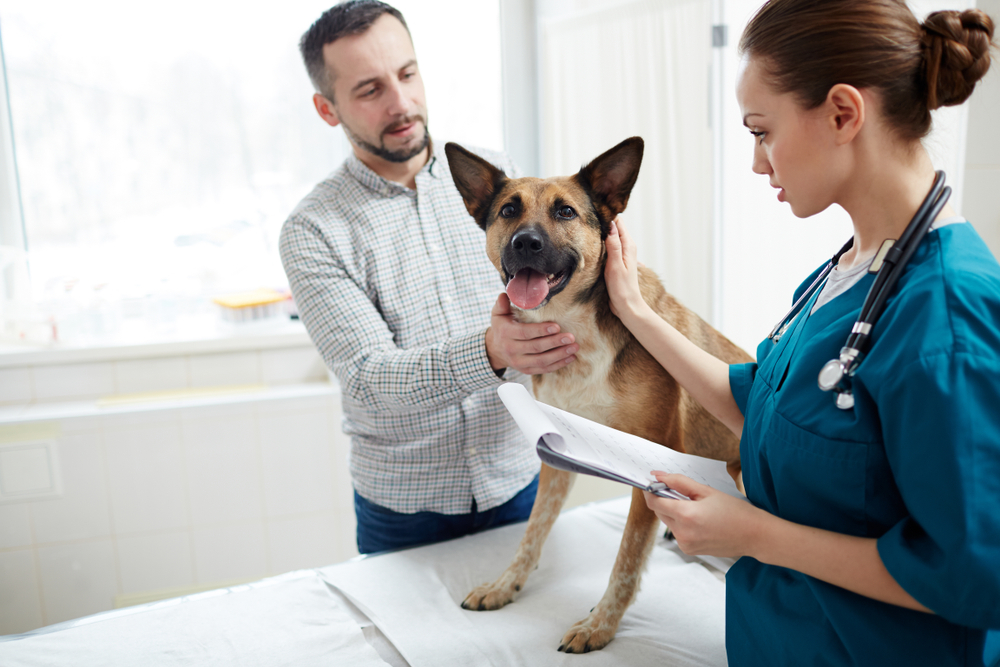
Taking Your Dog to the Vet
You’ll want to take your pup to the vet if the cough isn’t clearing up. If your dog has more than a cough, such as nasal discharge or lethargy, you should take them to the vet as soon as possible.
Your veterinarian may recommend specific tests for your furry family member, such as:
- Blood work to check for evidence of infection
- Radiographs (X-rays) to look for evidence of pneumonia
- Respiratory testing with conjunctival and pharyngeal swabs
- Heartworm testing to ensure no evidence of heartworms
Depending on your veterinarian’s exam findings, they may recommend different courses of treatment. For instance, antibiotics are only indicated with evidence of a bacterial infection. Cerenia is labeled as an antiemetic, but it can help some cases of coughing. Some dogs need supportive care, such as fluid therapy and nutritional support, if they are unwilling to eat and drink on their own.
PangoVet. It’s an online service where you can <b>talk to a vet online</b> and get the personalized advice you need for your pet — all at an affordable price!
</p>
<div class="su-button-center"><a href=https://www.dogster.com/dog-health-care/"https://pangovet.com/?utm_source=dogster&utm_medium=article%22 class="su-button su-button-style-default" style="color:#FFFFFF;background-color:#FF6600;border-color:#cc5200;border-radius:9px;-moz-border-radius:9px;-webkit-border-radius:9px" target="_blank" rel="nofollow"><span style="color:#FFFFFF;padding:0px 24px;font-size:18px;line-height:36px;border-color:#ff944d;border-radius:9px;-moz-border-radius:9px;-webkit-border-radius:9px;text-shadow:none;-moz-text-shadow:none;-webkit-text-shadow:none"> Click to Speak With a Vet</span></a></div></div></div>"}" data-sheets-userformat="{"2":4224,"10":2,"15":"Arial"}" data-sheets-validation-definition="{"1":{"1":{"1":23,"2":[{"1":1,"3":{"1":{"1":[{"1":4,"6":1},{"1":1,"2":"="}]},"2":{"1":[{"1":2,"2":"="},{"1":3,"3":1}]},"3":"R1]S"},"4":[{"1":{"1":1,"2":21,"3":0,"4":1,"5":2236944,"6":"841046713"},"2":1}]}],"6":[{"1":{"2":{"1":2,"2":"🛡️ Flea & tick"}},"2":{"1":2,"2":676776},"3":{"1":2,"2":12574966}},{"1":{"2":{"1":2,"2":"❤️ Preventative wellness"}},"2":{"1":2,"2":676776},"3":{"1":2,"2":12574966}},{"1":{"2":{"1":2,"2":"⚠️ Urinary problems"}},"2":{"1":2,"2":676776},"3":{"1":2,"2":12574966}},{"1":{"2":{"1":2,"2":"👁️ Eye issues"}},"2":{"1":2,"2":676776},"3":{"1":2,"2":12574966}},{"1":{"2":{"1":2,"2":"🩺 Other"}},"2":{"1":2,"2":676776},"3":{"1":2,"2":12574966}},{"1":{"2":{"1":2,"2":"🍎 Ate or drank"}},"2":{"1":2,"2":676776},"3":{"1":2,"2":12574966}},{"1":{"2":{"1":2,"2":"🐕 Behavior & training"}},"2":{"1":2,"2":676776},"3":{"1":2,"2":12574966}},{"1":{"2":{"1":2,"2":"🤮 Vomiting"}},"2":{"1":2,"2":676776},"3":{"1":2,"2":12574966}}]},"2":{"1":{"1":[{"1":4,"6":0},{"1":4,"6":1},{"1":2,"3":"CONDITION_ONE_OF_RANGE","4":2},{"1":1,"2":"="}]},"3":"R0]R1]FCONDITION_ONE_OF_RANGE:2]S"},"3":[{"1":{"1":0,"2":1,"3":0,"4":1,"5":1118464},"2":0},{"1":{"1":1,"2":21,"3":0,"4":1,"5":2236944,"6":"841046713"},"2":1}]},"2":"","3":1,"4":1,"6":0}" data-sheets-validation-id="0"> If you need to speak with a vet but can’t get to one, head over to PangoVet. It’s an online service where you can talk to a vet online and get the personalized advice you need for your pet — all at an affordable price!

Frequently Asked Questions
Can humans catch kennel cough from dogs?
It’s rare for people to catch kennel cough from dogs, but some illnesses can spread between pets and people, such as COVID-19.
Does Benadryl help with kennel cough?
Benadryl can help some dogs with allergy signs, primarily related to sneezing or watery eyes. Unfortunately, Benadryl doesn’t treat coughing in dogs, so it’s unlikely to help with kennel cough.
 Conclusion
Conclusion
If your dog starts coughing, there are several things you can do to help alleviate their illness. Using a humidifier and reducing exposure to airway irritants can all help lessen your dog’s coughing. If the cough worsens or doesn’t improve, you should contact your veterinarian for an exam, as medications may be necessary.
See also:
Featured Image Credit; Zontica, Shutterstock
Contents
- What Exactly Is Kennel Cough?
- Signs of Kennel Cough in Dogs
- The 8 Home Remedies for Kennel Cough
- 1. Using a Humidifier or Steam
- 2. Try a Spoonful of Honey
- 3. Rest Your Dog
- 4. Offer Fluids and Liquid Foods
- 6. Use a Harness
- 7. Try a Cough Suppressant
- 8. Immune Support
- Taking Your Dog to the Vet
- Frequently Asked Questions
- Conclusion


